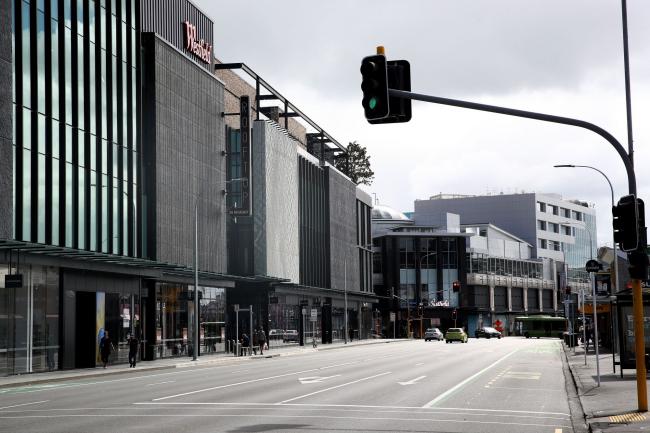(Bloomberg) -- New Zealand declared a state of national emergency, giving the government additional powers to enforce a nationwide lockdown.
From midnight Wednesday, everyone except those deemed to work in essential services will be required to stay at home. People can go outside with household members but must observe a two-meter distance from anyone else to curb the spread of coronavirus.
“Unlike so many other gravely inundated countries, we have a window of opportunity to stay home, break the chain of transmission and save lives,” Prime Minister Jacinda Ardern told parliament. “In this fight against the virus we have some things on our side. We are moving into this next phase of our response early, ahead of any potential overrun of our hospitals, ahead of any deaths on our soil. But that does not mean we should be complacent, and that’s why we must take this period of self-isolation deadly seriously.”
New Zealand is attempting to eliminate the virus before it takes hold, having seen the devastation caused in countries like Italy where authorities acted too late. The South Pacific nation has 205 confirmed and probable cases, the vast majority of which can be traced to international travel, but the first signs of community transmission have been detected.
The nationwide lockdown, initially in force for four weeks, will see all schools and non-essential businesses close. Supermarkets, pharmacies and other essential services will remain open, though many are required to limit customers to one at a time.
The unprecedented measures have prompted panic buying. One supermarket chain said it sold enough food in a single day to feed 10 million people -– twice the population of New Zealand.
There has also been anger as domestic holiday makers find themselves stranded, unable to book passage on ferries or flights. That prompted the government to extend the start of the lockdown for those still trying to get home until midnight Friday. It has advised the tens of thousands of New Zealanders still on holiday abroad to remain where they are.
The government has also been forced to decide which businesses need to remain open to reduce the economic disruption. Some, such as hardware stores, will be closed to the public but open to tradespeople so that essential services can continue.
Economic Hit
The hit to the economy will still be severe, with economists predicting thousands of job losses even after the government announced massive spending packages to keep companies afloat. The central bank has launched a program of large asset purchases to keep interest rates low.
Ardern said it is only the second time in New Zealand’s history that the government has declared a state of national emergency -- the first was after a devastating earthquake in the South Island city of Christchurch in 2011 that killed 185 people.
It gives the government powers to enforce public compliance with emergency rules. They include powers of requisition for essential goods such as fuel, closing roads and stopping certain activities, excluding people from places and prohibiting or regulating traffic.
“We’re hoping that people have heard the messages and understand how horrendous this could get,” said Sarah Stuart-Black, director of Civil Defence Emergency Management. “We don’t want thousands of people to die. There will no tolerance for people who do not comply with the requirement to self-isolate to keep New Zealand safe.”
(Updates with Prime Minister’s comment from third paragraph)
©2020 Bloomberg L.P.
